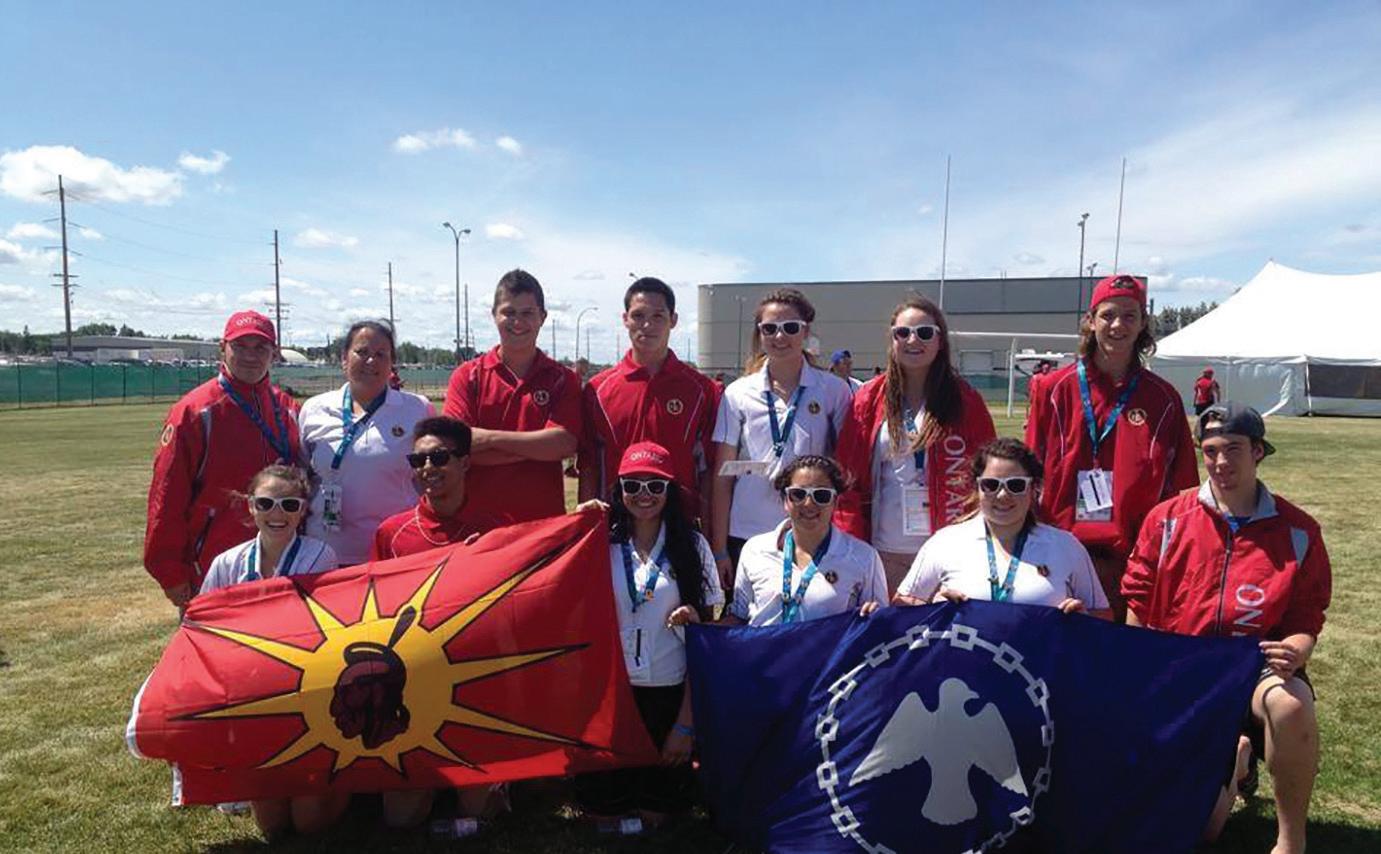
4 minute read
Indigenous Pride and Basketball
By: James McCourt
INDIGENOUS PRIDE
Advertisement
AND BASKETBALL
I was taught that the drum is the heartbeat of mother earth. It’s a rhythm that you can feel to the core of your existence. If you’ve ever visited a powwow, a longhouse or been part of a ceremony, you know what I’m talking about. The cadence, the pattern, the organization and occasionally the perceived chaos. Coincidently these are the things that I love about sport. The predictability that lies in the unpredictable. With the recent discoveries of residential school deaths, and many more discoveries still to come, Canada is waking up to what many Indigenous communities have known for a long time. The legacy of colonisation and residential schools is still felt very strongly in Indigenous communities and individuals. Years of assimilation policies have left some Indigenous people asking who am I and where do I fit in? Physical activity, games and sport have the ability to offer a context for identity formation in youth and is often used for socialization. Throughout our lives everyone is exposed to some aspect of physical activity, games and sport. This could be as simple as playing at recess, moving around your workspace or as complex as being a part of an elite sport program. Many health benefits are associated with physical activity, games and sport. Studies have shown that with Indigenous participants who are involved in physical activity, games and sport, they have improved bone density, lower blood pressure, and reduced adiposity. Studies also show that there is a positive correlation between physical activity, games and sport to social, psychological, and academic benefits. Traditionally, physical activity, games and sport have held an important place within Indigenous communities. It was used as a teaching tool about survival. This part of everyday life was often tied to the land and fostered skills that included endurance, strength and agility. It also promoted traditional values, spirituality, and medicine. Nothing embodies that more than the Creators game – Lacrosse. I once had a friend tell me that the game itself is medicine. She said playing it feeds the mind, body and spirit. I would add coaching does as well. Within an Indigenous context, physical activity, games and sport can offer a space to develop a cultural identity. It provides an opportunity to promote pride, cultural knowledge and develop personal characteristics such as, overall wellbeing, confidence, respect, belonging, self-esteem, coping skills, positive understanding of achieved success, and leadership skills. It also helps to create a foundation for movement. Traditional activities have the potential to offer Indigenous youth a sense of connection and inclusion. Despite years of attempted assimilation, many Indigenous youth are not only surviving, but are thriving. Having a strong cultural identity can serve as a buffer to the effects of colonisation and intergenerational trauma. In the Kenhteke community of Tyendinaga there are many sport programs that connect youth with culture. One such program is the Kanyen’kehá:ka Pride basketball program. This program is a basketball summer camp and was based off the Anishinabe Pride program which originated in Winnipeg, Manitoba. Both programs seek opportunities to infuse culture into basketball.
The creator of the Anishinabe Pride program, Jackie Anderson, describes the main goal of the program when she states “it’s really about teaching our kids about being in relationship.” Jackie explains that the Indigenous youth of the Pride program are taught about having a relationship with themselves, others and their community. The Anishinabe Pride program helps Indigenous youth identify positive and negative aspects of relationships and helps them understand the role that culture can have in developing those relationships. These lessons are taught using the Seven Grandfather teachings, through a mandatory cultural component called the Sacred Seven program. In Kenhteke, the Kanyen’kehá:ka Pride basketball program partnered with Karihwawihson Brown and Rotinonhsyón:ni Cultural Consulting. Each day of camp is started with a cultural teaching that is continually reinforced throughout the day. Main teachings focus around the Ohén:ton Karihwatékhwen (the Thanksgiving Address), the journey of the Peacemaker and Skennen (peace and a good mind). The emphasis on culture, grounds the Indigenous athletes and aids in identity formation that seeks to support Indigenous traditions in a positive way. Like many other programs, the Kanyen’kehá:ka Pride basketball program, housed at Quinte Mohawk School, has been hit hard by Covid 19 restrictions. Summer 2019 was the last time the camp ran and organizers say they can’t wait to get young ballers in the gym again. On summer days, when the Kanyen’kehá:ka Pride basketball program is in full swing, you can step into the gym and hear the rhythmic sounds of basketballs hitting the floor. If you close your eyes, you’d swear it was the drum and the heartbeat of Mother Earth.













